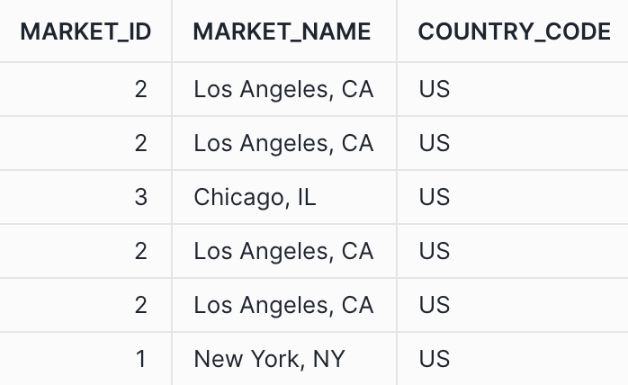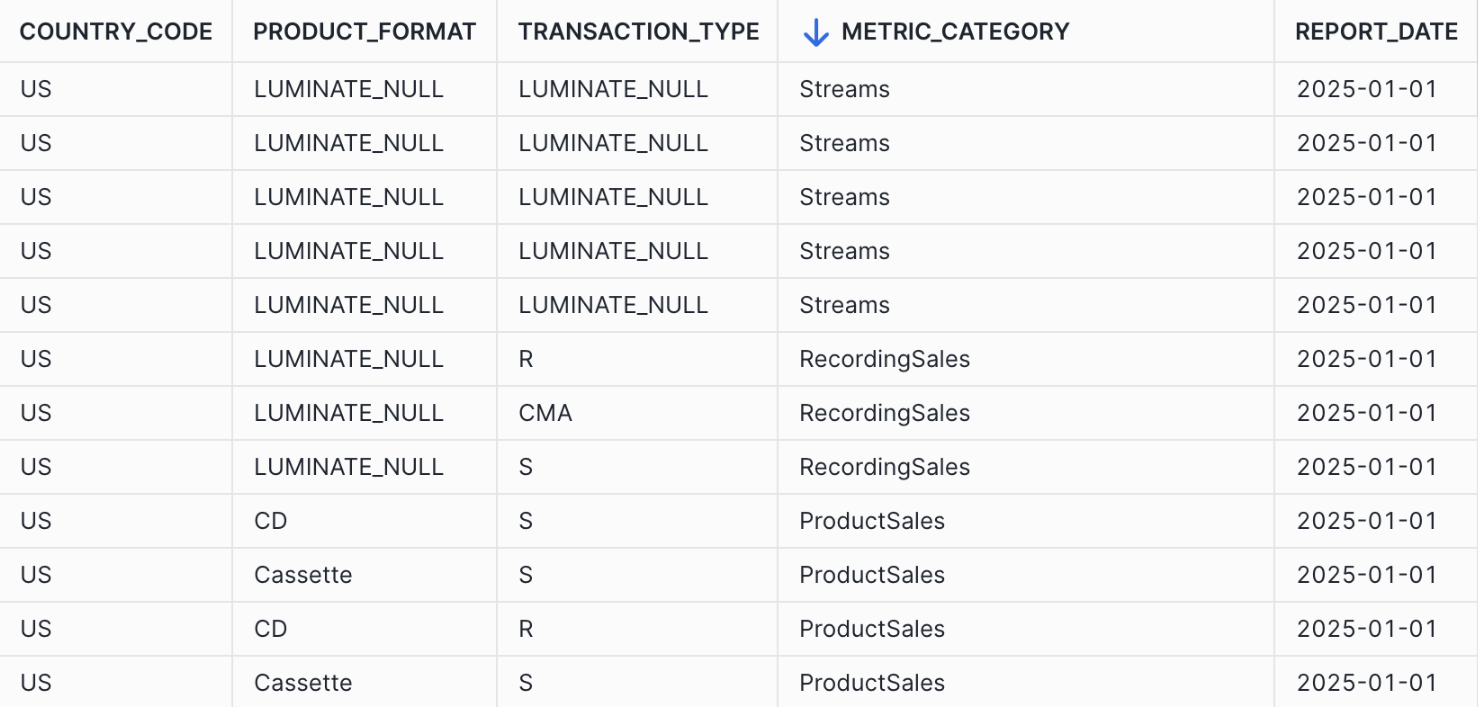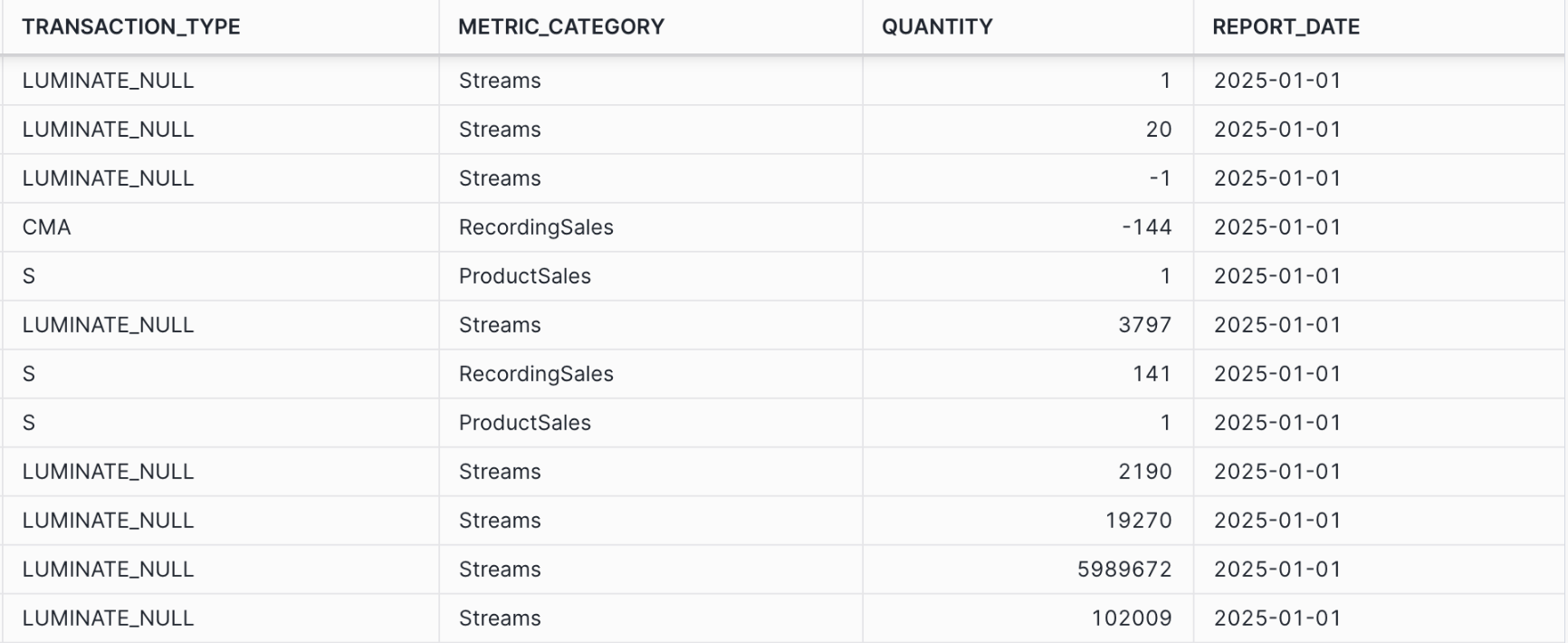Fact Data Structure
Overview
This article explains how the fact data presented in Luminate's Data Share should be interpreted. The fact data is provided in two different types of views: DETAIL and SUMMARY. The DETAIL views contain additional dimensions, such as market-level data and transactional information.
Data Structure
Each record in the fact views will report the nature of the activity, including the type of consumption, where it took place, and how it was consumed.
Geography
The location of the consumption is identified by the MARKET_ID, MARKET_NAME , and COUNTRY_CODE fields. MARKET_ID and MARKET_NAME represent the metropolitan area in which the consumption took place. Note: these fields are only applicable for the US and Canada territories. All other countries are reported at the national level. Also, the market-level data is not available in the SUMMARY views.

Metrics
The type of consumption is indicated by the METRIC_CATEGORY field. This will indicate if the consumer streamed or purchased the specified entity.

Breakouts
The method of consumption is identified by the breakouts that are associated to the METRIC_CATEGORY. There are 3 streaming breakouts (SERVICE_TYPE, CONTENT_TYPE, COMMERCIAL_MODEL) and 5 product sales breakouts (STORE_STRATA, DISTRIBUTION_CHANNEL, PURCHASE_METHOD, PRODUCT_FORMAT, RELEASE_TYPE). The RELEASE_TYPE breakout is only available in the Artist fact views. The full list of breakouts and breakout values can be found in VW_FACT_VALUES_DS.


Volume
The volume of the consumption is measured by the QUANTITY field. This field will primarily provide positive values, but it can include negative or 0 values as well. Negative values can occur for a variety of reasons, most commonly due to returns in sales transactions or data corrections from reporters.

Methodology
The fact data is updated by inserting new records for current and past dates. These records could be inserted for a variety of reasons, including: loading data for current REPORT_DATE, data updates and corrections for a past REPORT_DATE, operational changes. As mentioned above under "Volume", these records can have both positive and negative values. It is important to sum all related activity for a given timeframe to ensure accurate analysis. See more information on this topic in Best Practices documentation.
Updated 4 months ago